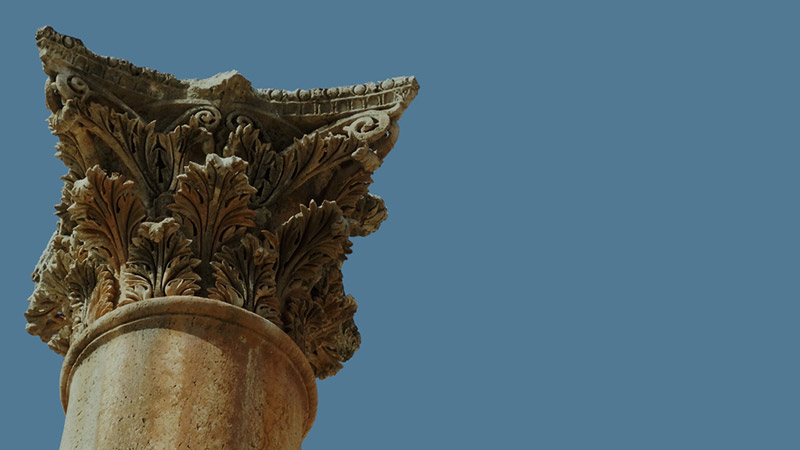More Results
Showing 12 of 207
Articles

The Latest Technology
Before 1200 BC, bronze was the metal in the Near East. Scholars believe that the technology of the ancient world was not advanced enough to heat metal to the temperature needed to melt iron and work it. The melting point of iron is 1,550 degrees C...
MORE
The Salt of the Earth
The City of SardisLocated on Mount Tmolus in southern Turkey, the city of Sardis stood at the crossroads of Asia Minor, the most prosperous, powerful, fertile, and pagan province of the entire Roman Empire. First-century Sardis had a unique blend ...
MOREEncyclopedia

The Judge's Platform
Just through the entrance of the gate, archaeologists reconstructed a canopy over the platform on which the ruler of the city sat. To the right, along the stone wall, is a bench possibly where the elders of the city sat. Note the decorative stones...
MORE
The Making of a City
The environment of the Middle East, including Israel, is harsh and mostly unsuitable for settlement. For a location to be habitable, three conditions were needed:1. Fresh Water - Although rainfall is plentiful in some regions of Israel, most rain ...
MORE
The Mount of Olives
The Mount of Olives is 2,650 feet above sea level. The ridge is two miles long. Beyond the Mount of Olives is the Judea Wilderness. The Old Testament predicted that the Messiah would come from the east through the wilderness and would enter Jerusa...
MORE
The New City
This view is from the northwest looking southeast across the New City. Jerusalem expanded to the north in Jesus' time, to the area in the foreground called the New City. The wall in the center is the second wall, and the area inside it is the busi...
MORE
The Philistines
The Old Testament frequently mentions the Philistines, a pagan people who clashed with God's children in the Promised Land. The Bible itself provides many interesting facts about Philistine culture, and archaeological discoveries have added to our...
MORE
The Shephelah
Shephelah is a Hebrew word meaning "low" and is usually translated "lowlands" or "foothills." The term refers to a twelve to fifteen-mile wide region in Judea, comprised of foothills that are located between the coast...
MORE
The Temple Mount at Jerusalem
God despised the Canaanite high places where pagan worship was carried out. His orders to the Israelites were to destroy them. Yet God communicated with his people through their culture. He allowed them to establish high places where he could meet...
MORE
The Temple of Domitian
Built on the slope of the hill south of Ephesus and extending into the center of the city, this prominent temple could be seen from nearly everywhere in Ephesus, including the land and harbor entrances. The Ephesians, who built it to honor their e...
MORE
The Theater at Beth Shean
This spectacular theater was built during the Roman period in the Decapolis city of Beth Shean, known also by its Greek name, Scythopolis. It was more than 360 feet in diameter and seated over 7,000 people. As seen here, one tier of seats remains....
MORE
The Theater at Caesarea
Herods' love of Hellenistic culture and his desire to introduce it to the Jewish nation is illustrated clearly by the theater at Caesarea. Apparently, this structure was built outside the city because its obscene and bawdy performances may have cr...
MORE

















